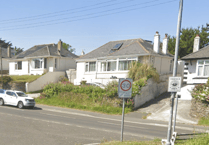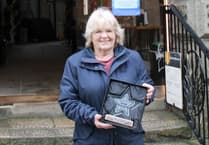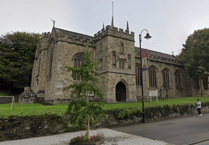A CAMPAIGN has been launched to oppose smart kiosks being installed in Newquay following concerns people will be bombarded with advertising.
Ad-Free Newquay is calling on people to object to a planning application to erect 12 two-sided Pulse Smart Hubs around town as they would “promote increased consumerism.”
The group also has concerns the hi-tech hubs would obstruct pavements, cause light pollution, have a negative impact on the aesthetics of the town and due to the energy needed to run them.
Technology firm Urban Innovation Company, proposes to install a smart hub at Berry Road, Bank Street, Chester Road, Central Square, Cliff Road, Fore Street, Henver Road, Headland Road, Narrowcliff, Pentire Road, Treloggan Road and Wiliam Hosking Road.
Ad-Free Newquay is particularly against the smart hubs being put in place at Headland Road following concerns it could have a detrimental impact on the landscape around Fistral Beach.
The hi-tech hubs would provide various benefits including free phone calls. Wi-Fi provision, mobile device charging and a defibrillator.
They also feature a 999 button that connects directly to the police, fire, and medical services in case of an emergency and a free-to-use touchscreen interface to access local maps, services, facilities, and visitor information.
The devices additionally offer public messaging to promote the town, local services, and events as well as sensors that capture data on air quality, traffic flow, and footfall that can be used to improve the environment and peoples’ well-being.
Katie Wise from Ad-free Newquay said: “We object to promoting increased consumerism.
“We do not need to be exposed to 24 more adverts a day, especially digital ones.
“Children are particularly vulnerable to advertising as they do not have developed reasoning skills.
“Digital advertising usually costs £1,000 a month, so won’t be affordable to our local businesses. It will be national products, more likely to draw consumers away from our high street.
“Our pavements are not wide. We need space for wheelchairs, prams, pushchairs, surfboards and bikes. Having objects on the pavement will decrease accessibility for locals and tourists.
“Each board uses the electricity equivalent of four households per year to run, that’s 16,819kWh. Using the equivalent of 48 houses of electricity a year does not help us move towards net zero.
“The raw material to make these are finite, precious and non-renewable. There are currently no facilities to recycle these digital advertising boards once finished with. Light pollution. We don’t need this extra light pollution in our town.”
Urban Innovation Company states the smart hubs support the “health and vitality” of the communities they serve. The company added provides a minimum of five per cent of screen time on the main advertising screens to the council, local stakeholders and organisations.
A spokesperson for Urban Innovation Company said: “Our vision is to provide everyone, free of charge, the ability to connect to information, communicate, feel safe and have access to emergency life-saving equipment.
“We want to continue being the leaders of this space, driving real public and community benefits, saving lives, and connecting people in the areas we operate.
“We commit to giving a minimum of five per cent of screen time on the main advertising screens to the council, local stakeholders and organisations to promote the area, local services, events and support networks.
“This equates to 650 free messaging slots per hub, per day
“The Pulse Smart Hub is a modern-day piece of street furniture that supports the health and vitality of the communities we serve.”





Comments
This article has no comments yet. Be the first to leave a comment.